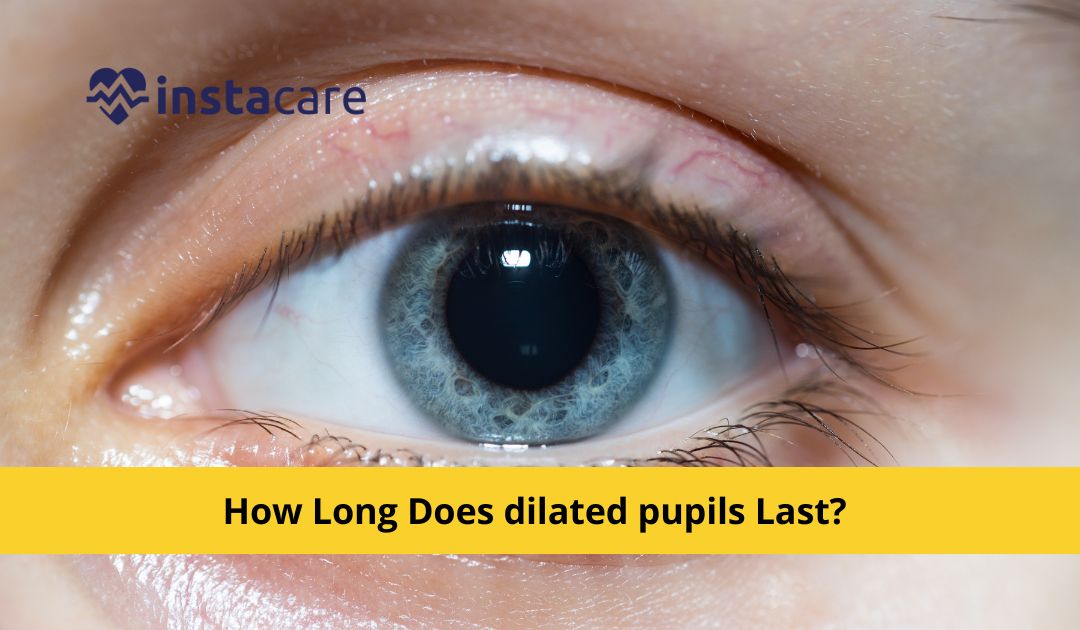Dilated pupils can be a sign of health conditions both
serious and non-serious. They can also occur as a side effect of certain
medications or even as a result of an eye exam. Whether you’re experiencing
dilated pupils because of health issues, medication, or just being in bright
lights for too long, it's important to understand the implications of this
condition and how long dilation typically lasts. In this blog post, we will
explore why dilated pupils may appear and how they affect various medical
scenarios. We'll also provide an overview of how long one might expect these widely
varying effects to last so that you can make informed decisions concerning your
own situation and seek further resources if needed.
What Is Eye Dilation?
The human eye is a marvel of biological engineering, and it can respond to different stimuli in fascinating ways. One of the most noticeable changes that can happen to the eye is called dilation, which refers to the enlargement of the pupils. Dilated pupils are often a sign of excitement, fear, or arousal, but they can also occur in response to low-light conditions or certain types of medications.
When the pupils dilate, more light can enter the eye, which can improve vision in some cases. However, prolonged dilation can also lead to sensitivity to light or difficulty focusing. In short, eye dilation is a complex and dynamic response that can reveal a lot about our internal state.
Which Circumstances Cause Eye Dilation?
The human eye is a complex organ that can express a range of emotions, from joy to fear, and can experience a variety of physical changes, one of which is eye dilation. Eye dilation happens when the pupil, the dark center of the eye, becomes larger in size. This phenomenon can be influenced by a number of factors, including emotions, lighting conditions, and medication.
Whether it's due to a romantic encounter, a scary movie, or an eye exam, many people have experienced this change in their eyes. Understanding the reasons behind eye dilation can provide important insights into how our bodies and minds function.
View More: Weakness Of Vision - Symptoms Causes Treatment And Remedies
Are There Any Side Effects to Eye Dilation?
Eye dilation is a common procedure often performed during an eye exam. While it is generally considered safe, there are potential side effects that patients should be aware of. One such side effect is the possibility of developing pink eye, also known as conjunctivitis. Pink eye is an inflammation of the conjunctiva, the thin membrane that covers the whites of the eyes and the inside of the eyelids. It can cause redness, itching, and discharge from the affected eye.
While pink eye is typically a mild condition that clears up on its own within a few days, it can be uncomfortable and may require treatment. If you experience any symptoms of pink eye after an eye dilation procedure, be sure to follow up with your eye doctor.
How To Make Eye Dilation Go Away Faster
If you've ever had your eyes dilated during an exam, you know
how frustrating it can be to see the world through foggy, blurry lenses for
hours afterward. Dilated pupils are not only bothersome but can also leave you
feeling vulnerable and sensitive to bright light.
Thankfully, there are a few tricks to help make eye dilation go away faster. One of the easiest is to simply wear sunglasses or shield your eyes from bright light until your pupils have returned to normal. You can also try drinking plenty of water or caffeine to help flush the dilation medication out of your system more quickly. Some people even swear by using over-the-counter eye drops like Visine or artificial tears to soothe the irritation and speed up the recovery time. Whatever method you choose, remember to be patient and take care of your eyes – they're one of your most precious assets!
What Not To Do After Eye Dilation
If you've ever had your eyes dilated, you know how strange it can be. Suddenly, your pupils are so large that everything appears blurry, and bright lights are almost unbearable. But did you know that there are certain things you shouldn't do after you've had your eyes dilated? First and foremost, do not drive until the effects have fully worn off. Your vision will be impaired and it's not worth risking an accident. Additionally, you should avoid reading small print or using a computer screen for extended periods of time. Give your eyes a break and let them adjust.
Lastly, try not to rub your eyes - this can cause irritation and discomfort. Remember, pupillary dilation is a necessary part of certain eye exams, but be cautious of your actions afterward to ensure a safe and comfortable experience.
Conclusion
Dilated pupils can remain dilated for a variety of reasons, both expected and unexpected. While the duration of the dilation may vary based on each particular case, it is usually only temporary and should not be cause for alarm. However, if your reactions to stimuli and pupillary response appear to be delayed or prolonged compared to your usual experience, it is wise to schedule an appointment with an ophthalmologist right away.
After consultation with a physician, you can get a better sense of how long will your dilated pupils last as well as what underlying health issues might be present. Taking proactive action is always best for proactive prevention of any unwanted health risks that may arise. To stay up to date with recommended eye checkups, be sure you research local optometry clinics in your area that can provide the most reliable healthcare services. Contact them today and make sure that optimal vision is just around the corner!


